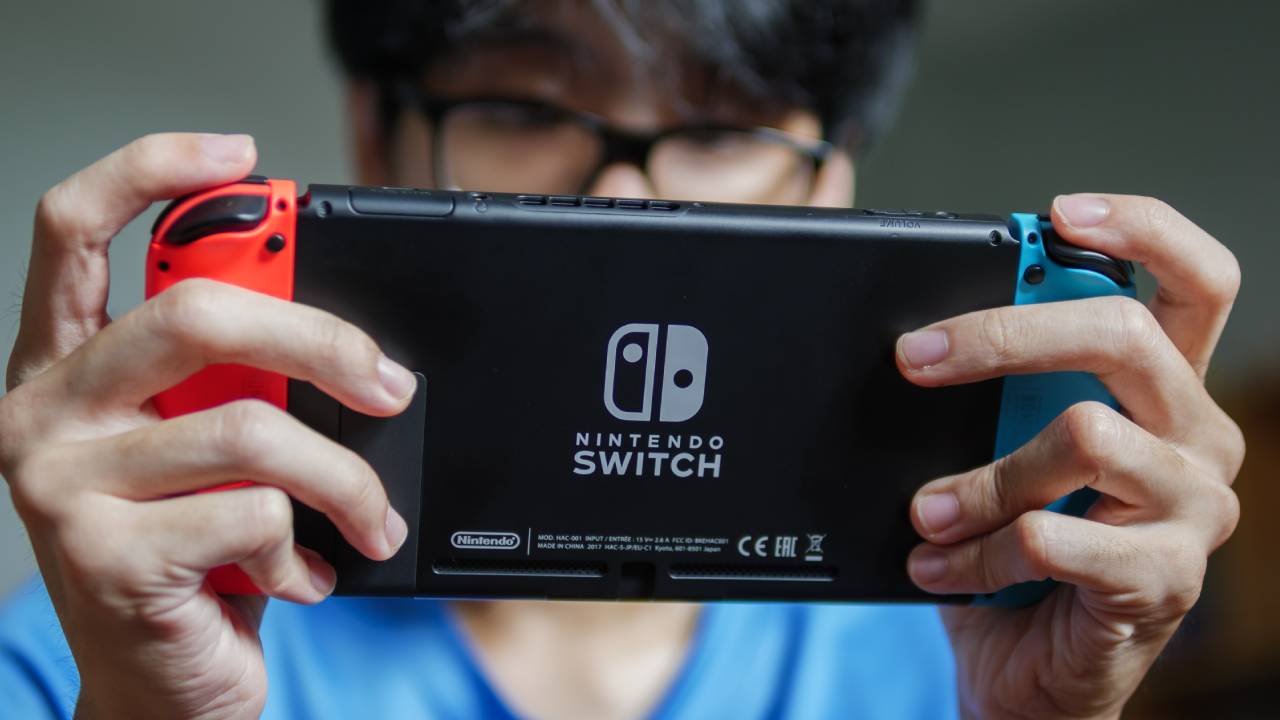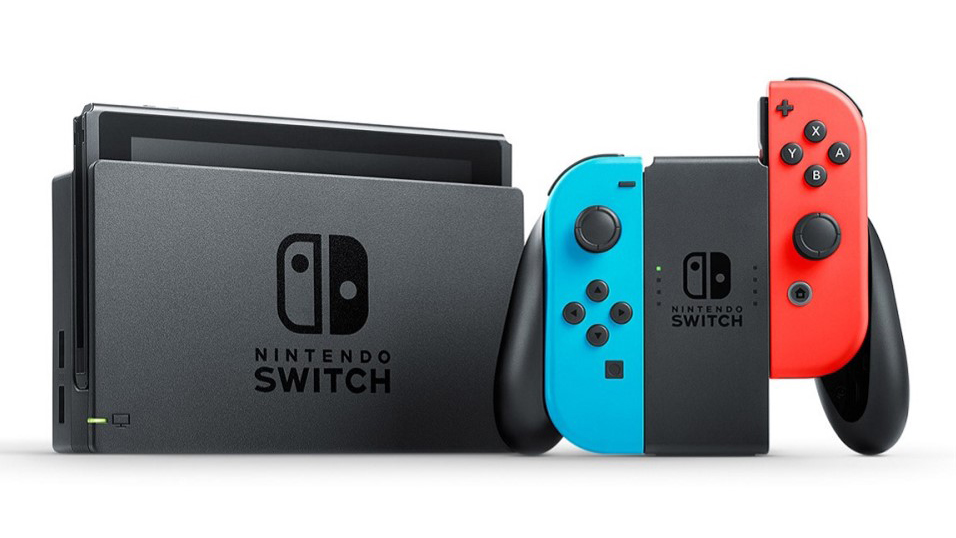Nintendo Switch 2: what can we expect from Nintendo’s next home console?
Nintendo might not have yet unveiled a fully-fledged Nintendo Switch 2, but we have got a glimpse of a half-step towards that dream console. The Nintendo Switch OLED (long expected to be called the Nintendo Switch Pro) has been unveiled and has given us an idea of where Nintendo's consoles are headed.
Be sure to take our predictions with several pinches of salt mind you, as Nintendo’s new hardware tends to differ wildly from the one that precedes it. he Wii U basically ditched the motion controls of the best-selling Wii in favor of the Wii U GamePad, and the Switch is the first time Nintendo ever produced a fully hybrid-style device (the Wii U could be played remotely via the GamePad in some cases, but only a few meters away from the console), one that could be played on a TV as well as taken on the move. There’s no guarantee, then, that Nintendo will actually make a Nintendo Switch 2 – at least not in the traditional sense.
Nevertheless, it’s always fun to speculate, so let’s make an educated guess at what the Nintendo Switch's successor might look like, and explain Nintendo’s approach to console hardware in general.
Nintendo Switch 2: everything you need to know
Nintendo Switch 2 release date: when could it launch?

The Nintendo Switch was released on March 3, 2017 and the upcoming Nintendo Switch OLED will release on October 8, 2021. Both of these are more than a little surprising as consoles tend to release during November so that retailers can take advantage of the holiday season.
October is nearer November, suggesting we might see a Nintendo Switch 2 (or whatever it ends up being called) release in a more traditional launch window, but the video game company has a habit of doing as it pleases.
As for the year we might see the console release, a typical Nintendo release cycle is around five years. The Nintendo Switch OLED will come out four years after the original released, so it has probably delayed the next generation of Nintendo consoles somewhat.
For comparison, the PS4 Pro was released in 2016 and was on the market for four years before the PS5 arrived. If we use the PS4 Pro as an example, then, we might be waiting until at least 2024 or 2025 for Nintendo’s next home console to arrive. However, Nintendo certainly won’t sit around if it’s decided the Nintendo Switch 2 is ready to come to market.
Nintendo Switch 2: what can we expect?

Nintendo’s R&D department will already be hard at work on the company’s eighth home console, and will most likely have started as soon as the Nintendo Switch was officially signed off. While it’s easy to throw together a list of dream specifications for Nintendo’s next system, there will be one overriding goal that the company will stick to rigidly: Nintendo’s next console has to put smiles on people’s faces. That’s the Kyoto-based company’s core mission statement after all, which means we should safely expect the unexpected.
But what can we predict at this stage? Well, as it’s consistently shown, Nintendo likes to blaze its own trail. In fact, the company specifically avoids trying to go toe-to-toe with the likes of Sony and Microsoft, simply because it knows it can’t compete in a technological arms race or pricing war. We won’t be getting a console that is more powerful than the PS5 or Xbox Series X, then, nor will it follow the same approach.
Instead, Nintendo will continue to employ what is known as the ‘blue ocean strategy’. Essentially, this means that the company will try to find a gap in the market that is untapped by its competitors. Yes, it’s still in the same business of making hardware and selling video games, but Nintendo will aim to offer something unique, be it a new-spin on an existing idea or a new control scheme. The platform holder then relies on its timeless IP to drive home the console’s new features.
That might be disheartening for those who still wish that Nintendo would compete more directly with Sony and Microsoft. But if you exclude the Wii U – which was, categorically, a failure – Nintendo has been incredibly successful with this strategy ever since it changed tact after the Nintendo GameCube.
The Nintendo DS and Nintendo 3DS, with their clam shell design and dual screens, were widely written off when compared to Sony’s PSP and PS Vita, but it was Nintendo’s quirky offering that came out on top – so much so, that Sony pulled out of the handheld market entirely. The Wii, a console that was barely more powerful than the Nintendo GameCube and only capable of outputting in standard definition, went on to win hearts and minds and broaden the gaming demographic thanks to its intuitive control scheme and instant appeal. In retrospect, it’s so easy to see why a game like Wii Sports Tennis would sit well with a wider audience, especially those who had never played a video game before.
What happens in the gaming industry won’t necessarily cause Nintendo to change course, but if the hybrid console market gets too competitive (and it might if Valve is indeed working on a portable Steam Console known as the ‘SteamPal’), and cloud gaming continues to be more viable, Nintendo might change its focus once again.
Nintendo Switch 2: what we want to see

We’d be surprised if Nintendo does abandon the Switch-like model in the future, though. A dedicated handheld no longer makes sense for Nintendo, as it often resulted in the company’s resources being spread too thin. Droughts were commonplace, as Nintendo’s developers were stuck between trying to support two consoles instead of one.
We’re quietly confident then that the Nintendo Switch 2 will be a portable and a home console. And here’s what we’d like to see.
Ditch the dock
The Nintendo Switch dock is basically a chunk of plastic with a slot in the middle. Yes, you need it to output to the TV, but we’d like a much more elegant solution for the Nintendo Switch 2, and even the option of connecting to a TV without even needing an additional piece of hardware other than a cable.
More storage
The Nintendo Switch comes with 32GB of internal storage and the Nintendo Switch Oled doesn't do much better with just 64GB. Thankfully, this can be expanded via microSD cards, which are relatively cheap, but we still think Nintendo can do a lot better than giving users such a measly amount. We hope the Nintendo Switch 2 will come with at least 500GB of storage this time around. This would put the Switch 2 in line with the PS4 Slim and Xbox Series S in terms of storage space.
Fix Joy-Con drift
The Joy-Con are fantastic little controllers, but they’re prone to too many hardware failures. We’ve seen Joy-Con drift affect countless Switch owners, which causes your character or onscreen reticule to move on its own. This can essentially be game-breaking at worst, and annoying at best. Let’s hope Nintendo can iron out these issues on its next console if indeed it sticks with the Joy-Con controllers moving forward.
Bluetooth support for headsets
This is a must if Nintendo wants to keep the portable aspect of its next console. Having to lug around a wired headphone or a pair of earbuds isn’t in line with the fact most of us are ditching the chord for wireless options, especially those that are capable of noise canceling. If you’re commuting on the train, being able to block out the background chatter of people on their daily commute would be a huge boon when playing on the Nintendo Switch 2.
A 4K OLED display
By the time the Nintendo Switch 2 arrives, 4K resolution will arguably be the standard that most consumers expect. We’d expect the next Switch’s display to be 4K, then, which will provide a crystal clear image when in handheld mode. The Nintendo Switch OLED will have an OLED display, but it only runs in 720p. This is pretty terrible compared to what other mainstream consoles offer, so Nintendo seriously needs to up its game.
Give us a D-Pad
We know that the Nintendo Switch Joy-Con doesn't have a D-Pad because of local multiplayer, but honestly, we’d love to see one. Perhaps Nintendo can create some sort of hybrid D-Pad that is able to operate as face buttons as well as a fully-functioning D-Pad?
Better online support
This is a must-have, in our opinion. Nintendo’s online offering feels like it is decades behind the competition, and its Nintendo Switch Online app is all but useless. We really hope Nintendo can implement a comprehensive suite of online features on the Nintendo Switch 2, as there are so many fantastic titles that would benefit from a better online experience.
Better battery life from the start
The original Nintendo Switch didn’t have the best battery life, with playtime averaging between 3 to 5 hours depending on the game. Nintendo managed to improve this considerably with its revisions of the Switch, but the Nintendo Switch Lite and Switch OLED are still afflicted by a weak battery. We hope that the Nintendo Switch 2 will at least let us power through for six hours uninterrupted before it needs to be charged.
- Nintendo Switch vs Nintendo Switch Lite: is bigger really better?
Contributer : Techradar - All the latest technology news https://ift.tt/34riFMS

 Reviewed by mimisabreena
on
Wednesday, July 07, 2021
Rating:
Reviewed by mimisabreena
on
Wednesday, July 07, 2021
Rating:













No comments:
Post a Comment